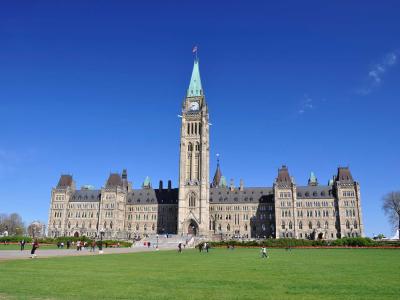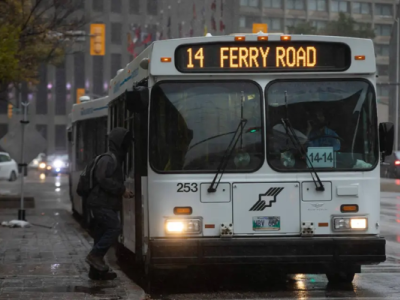A new Probe Research survey for the Free Press finds that despite a new Progressive Conservative party leader in place, overall party support in Manitoba is virtually unchanged from where it was three months ago. More than one-half of Manitobans continue to support Wab Kinew and the NDP (57%, no change from March). With Obby Khan chosen as the permanent PC leader, only one-third would cast a ballot for the PCs (32%, -1% vs. March) while just eight per cent prefer Cindy Lamoureux and the Manitoba Liberals.
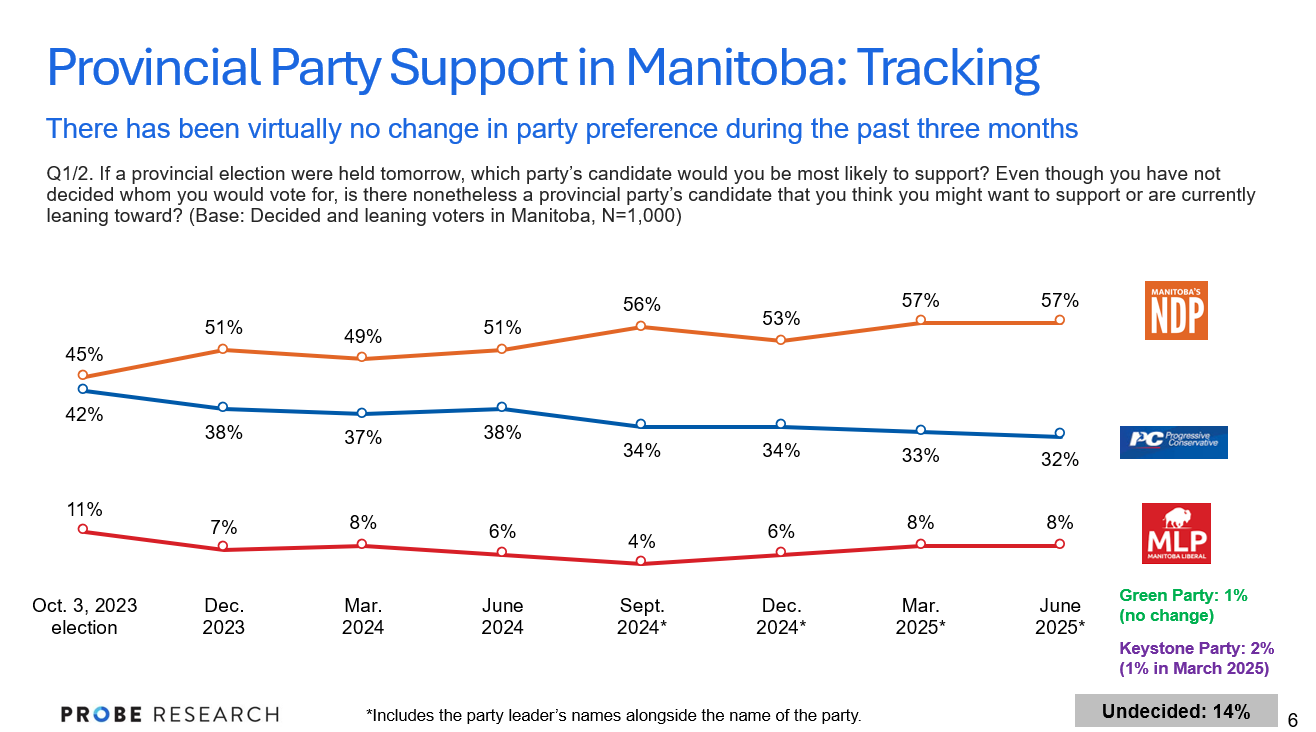
The NDP is now the most popular party beyond the Perimeter. One-half of voters in rural and northern Manitoba would cast a ballot for the NDP (50%, +5% vs. March), with only four in 10 preferring the PCs (41%, down from 47%). This is the strongest lead the NDP has had in rural/northern Manitoba since the election. Within Winnipeg, NDP support is slightly lower than it was in December (62%, down from 64%), but it still retains a major lead over the PCs, whose level of support is unchanged (25%).
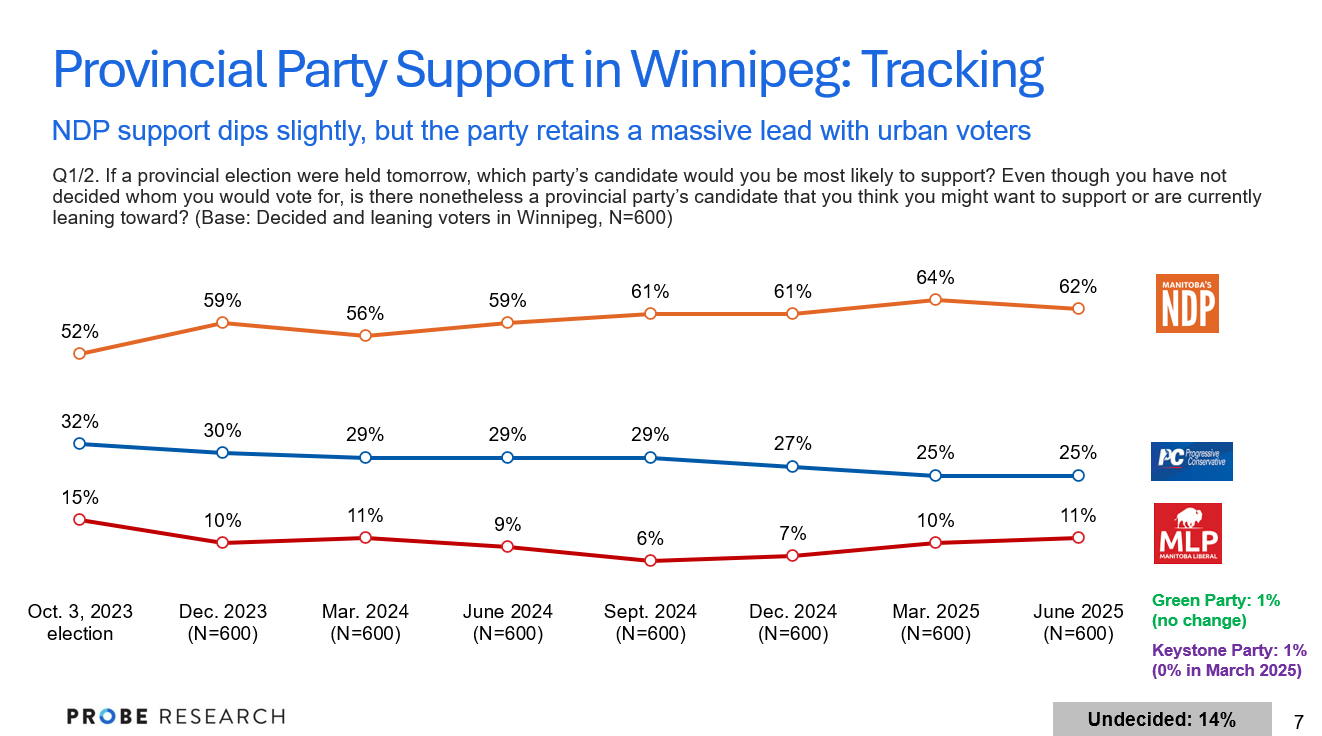
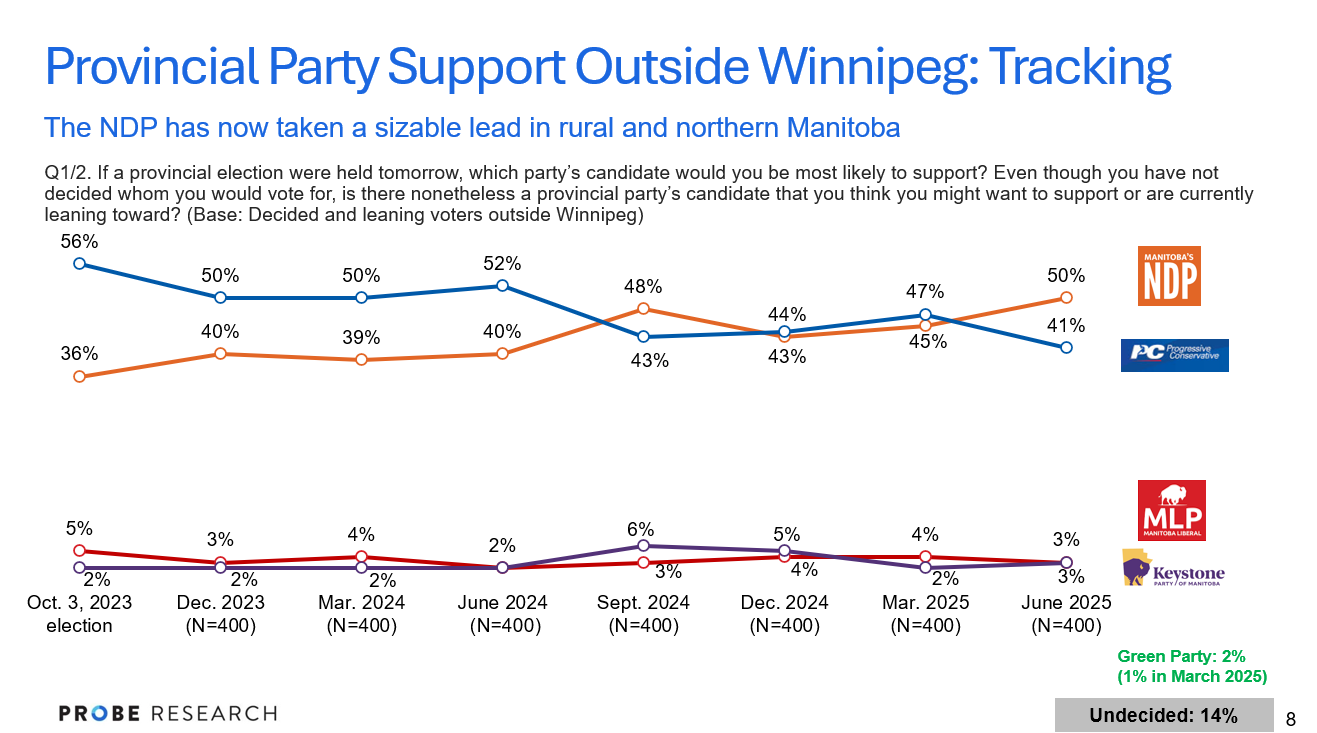
Only a modest number of Manitobans are currently open to voting PC with Obby Khan as leader. Although a sizable number (18%) are undecided, right now only four in 10 are open to voting for the PCs with Obby Khan as leader (41%, including 21% who will definitely vote PC and 20% who would consider it). Openness to voting PCs remains relatively low among two very important voting groups: women (32%, vs 49% among men) and those living in Winnipeg (37%, vs. 46% in rural/northern Manitoba). Only about one in five current NDP supporters are open to switching support to the PCs with Khan as leader.
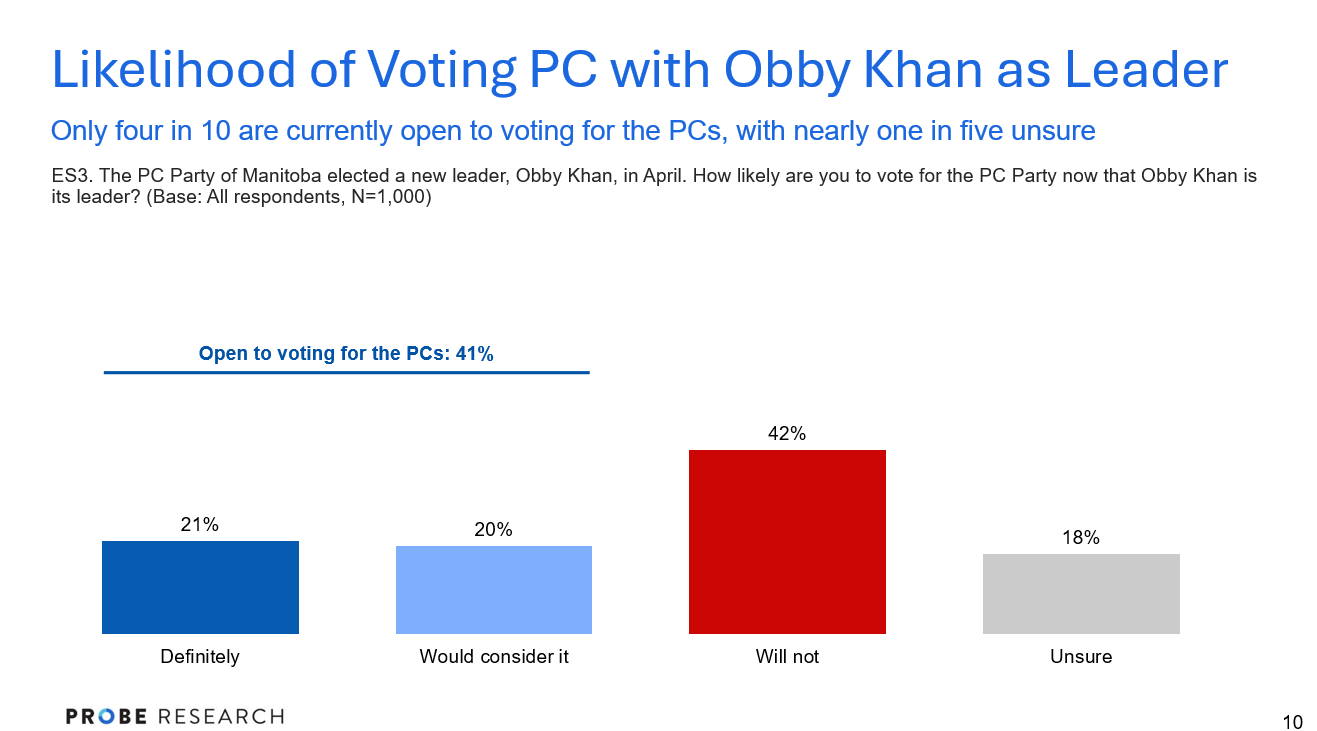
Manitobans have mixed feelings about another federal Liberal government in Ottawa. Slightly more than four in 10 (42%) are happy Mark Carney and the Liberals won a minority government in the recent federal election, with a slightly lower proportion (34%) unhappy about this. One-quarter (24%) had a neutral view. Women, Winnipeggers, older Manitobans and provincial NDP supporters are happiest about the federal election outcome.
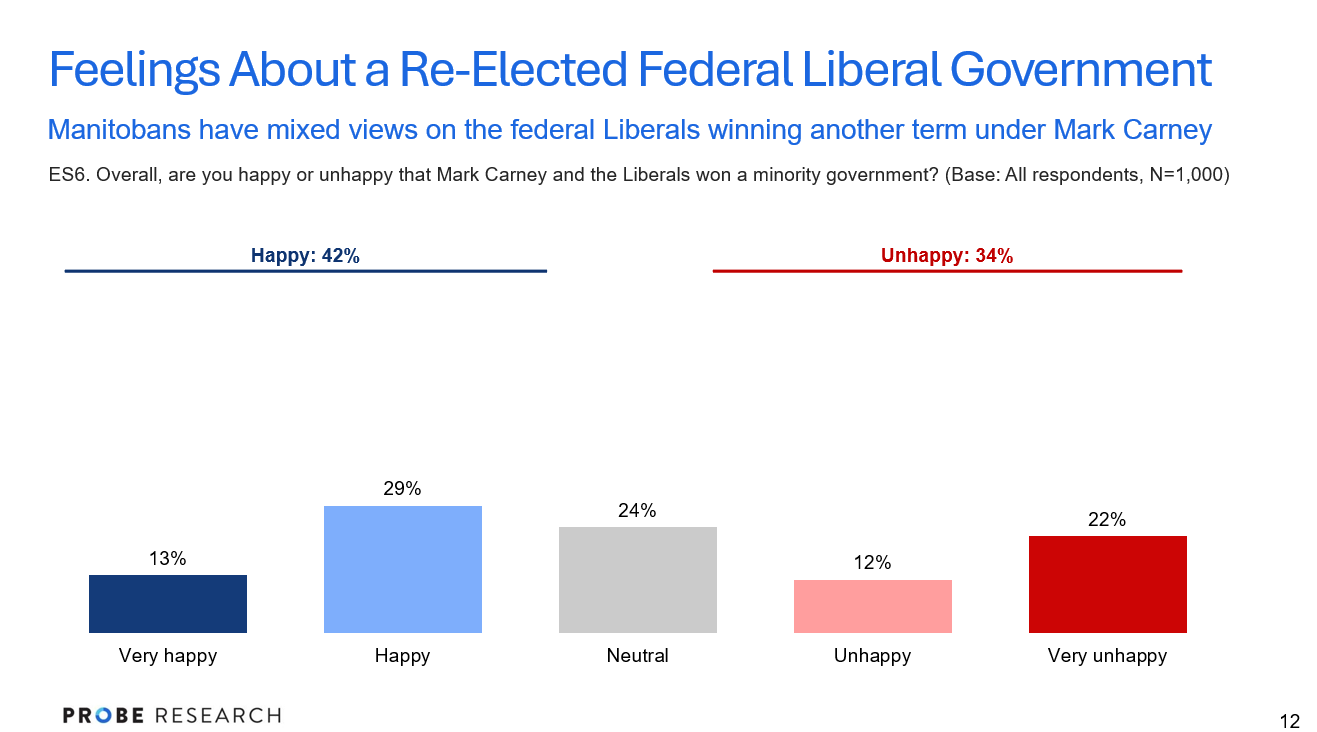
The Story
A new leader has not yet shifted the fortunes of the Progressive Conservative (PC) party, and the New Democrats remain incredibly popular in the province.
Obby Khan is now the permanent leader of the PCs, but his party remains well behind Premier Wab Kinew and the governing NDP. Worse, the Tories appear to have lost a bit of ground in their rural strongholds. Nearly two years since forming government, Kinew and the NDP continue to cruise along with very strong support from Manitobans throughout the province.
Besides slipping behind the NDP, what may be most concerning for the PCs is that their voter universe – the proportion of Manitobans open to voting for the party with its new leader – is relatively small. While nearly one in five Manitobans are unsure about whether they would vote for the PCs with Khan as leader, fewer than four in 10 Winnipeggers are open to voting PC in a provincial election. If the PCs wish to be competitive in the next provincial election, they will need to gain considerable ground among Winnipeggers and women – two voting blocks deeply committed to the NDP right now.
Methodology
Probe Research surveyed a random and representative sample of 1,000 Manitoba adults between May 28 and June 10, 2025.
The sample includes 501 Manitobans randomly recruited via live-agent operator, 246 randomly recruited via Interactive Voice Response (IVR) and 253 members of Probe Research's online panel. All respondents completed the survey on an online platform.
Probe reached out to Manitobans through modified random digit dialing, including both landline and wireless numbers. This ensured all Manitoba adults had an equal opportunity to participate in this survey.
With a sample of 1,000, one can say with 95 per cent certainty that the results are within ± 3.1 percentage points of what they would have been if the entire adult population of Manitoba had been surveyed. The margin of error is higher within each of the survey’s population sub-groups.
The sample has been weighted slightly by age, gender, region and educational attainment so it properly reflects the province’s population, based on Census data. Probe used SPSS software to conduct all statistical analysis.
Disclosure Statement
Probe Research is a member of the Canadian Research Insights Council (CRIC) and confirms that this research fully complies with all CRIC Standards including the CRIC Public Opinion Research Standards and Disclosure Requirements. Learn more here.

